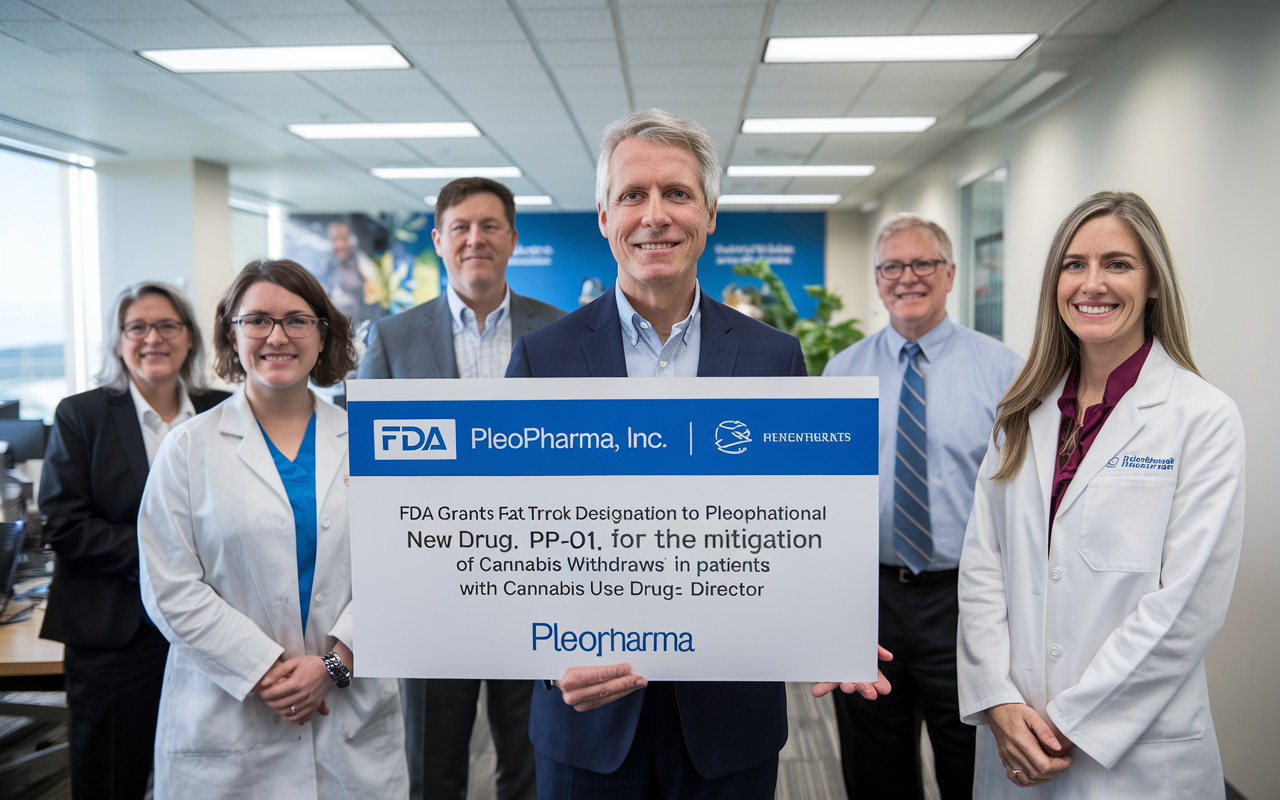Welcome, BioPharmaPulse Readers
Welcome to another edition of BioPharmaPulse! Today, we're delving into groundbreaking developments that are set to transform patient care and advance our understanding of complex diseases.
What's in this issue:
- 🧪 Discover a revolutionary 'super test' for prostate cancer
- 🧠 Explore new research aimed at unlocking cognitive health in psychotic disorders
- 🚀 Learn about the latest FDA fast-track designations accelerating therapies to patients
- 🧐 Reflect on the implications of technological gatekeepers in healthcare
Inspiration of the Day
"The science of today is the technology of tomorrow." — Edward Teller
Latest Developments
🧪 Cambridge scientists develop ‘super test’ for prostate cancer (2 minute read)

Rundown: Scientists in Cambridge have developed a new 'super test' that could revolutionize prostate cancer screening, diagnosis, and personalized treatment. This non-invasive test analyzes over 100 clinically validated biomarkers in blood and urine, significantly surpassing current methods which use up to 20 biomarkers. Utilizing AI-driven algorithms, the test achieves 96-99% accuracy in sensitivity and specificity across diverse populations.
Key Points
- 🔬 Combines proteomic, transcriptomic, genetic, and epigenetic biomarkers with phenotypic and symptom data
- 🤖 Employs AI algorithms to enhance diagnostic accuracy
- 💯 Validated across 31,000 prostate cancer samples and 100,000 non-cancer samples
- 🌐 Aims to reduce unnecessary MRIs and invasive procedures for men aged 45-70
Why it matters: Prostate cancer affects thousands annually, and early detection is crucial. This 'super test' has the potential to become the most accurate and sensitive screening tool available, significantly improving patient outcomes and reducing unnecessary procedures.
🧠 Bath researchers awarded Wellcome grant for psychotic disorder study (2 minute read)

Rundown: The University of Bath has received a £3.5 million grant from Wellcome to investigate cognitive decline and premature brain ageing in psychotic disorders like schizophrenia. Led by Professor Esther Walton, the five-year project aims to develop treatments with fewer side effects and find ways to prevent and slow cognitive impairment.
Key Points
- 🧪 Focus on cognitive impairment often overlooked in psychotic disorders
- 🧬 Using brain scans and computer models to study brain ageing
- 🐁 Incorporating animal studies to understand cellular changes
- 🤝 Co-designed with adults who have lived experience of psychosis
Why it matters: Cognitive impairment is one of the most disabling aspects of psychotic disorders, impacting patients' quality of life significantly. This research could lead to early interventions that slow or prevent deterioration, offering hope for improved patient outcomes.
🚀 FDA Grants Fast Track Designation to PleoPharma's PP-01 (2 minute read)

Rundown: PleoPharma announced that the FDA has granted Fast Track Designation to its investigational new drug, PP-01, for mitigating cannabis withdrawal symptoms in patients with Cannabis Use Disorder. This designation aims to expedite the development and review of drugs that treat serious conditions and fill an unmet medical need.
Key Points
- 🌿 PP-01 targets symptoms associated with Cannabis Use Disorder
- ⏩ Fast Track Designation facilitates accelerated approval processes
- 📈 Addresses a growing public health concern with increasing cannabis use
- 🧪 Ongoing clinical trials to establish efficacy and safety
Why it matters: With the rise in cannabis use, there's a significant need for treatments addressing dependency and withdrawal. PP-01 could provide a much-needed therapeutic option for patients struggling with Cannabis Use Disorder.
Question of the Day
🤔 How do you think AI will impact future diagnostics in healthcare?
- 🧪 Revolutionize early detection
- 📈 Improve treatment personalization
- 🛑 Pose ethical challenges
- 🤷 Too early to tell
Trending
🌟 Innate Pharma Announces FDA Granted Breakthrough Therapy Designation to Lacutamab
- Lacutamab receives Breakthrough Therapy Designation for relapsed or refractory Sézary Syndrome, potentially accelerating availability to patients in need.
🌟 Lundbeck’s Amlenetug Receives Fast Track Designation From the FDA
- Amlenetug, targeting Multiple System Atrophy, advances in development with the FDA's Fast Track status, highlighting the urgency for new treatments.
Industry Insight
📝 Demystifying Fast Track and Breakthrough Therapy Designations
Understanding FDA's expedited programs can help stakeholders navigate drug development pathways more effectively. Fast Track Designation is granted to expedite the review of drugs for serious conditions that fill an unmet medical need. Similarly, Breakthrough Therapy Designation is for drugs that show substantial improvement over existing therapies during preliminary research.
By leveraging these pathways, companies can bring innovative treatments to patients sooner, addressing urgent health challenges. It's essential for industry professionals to stay informed about these mechanisms to optimize development strategies.
Quick Hits
📰 STAT wins third Polk Award for Health Care’s Colossus series (2 minute read)
- STAT journalists win prestigious award for exposing how UnitedHealth Group exploits the healthcare system, highlighting the need for transparency and accountability.
📰 Opinion: The travel industry offers hospitals a warning about MyChart (1 minute read)
- Exploring how Epic Systems' MyChart could become a gatekeeper in healthcare, analogous to online travel agencies' impact on hotels.
📰 Drug inspectors, AI experts, maternal health workers: Trump’s health agency cuts are far-reaching (1 minute read)
- Reports on significant layoffs across federal health agencies and potential implications for public health and safety.
Wrap Up
Thank you for joining us in this edition of BioPharmaPulse. The pace of innovation in our industry is astounding, and we're thrilled to share these advancements with you. Stay curious, stay informed, and let's continue exploring the future of biopharmaceuticals together.
Until next time,
Elliot Reeves | BioPharmaPulse
😊 How did you like today's email?
- 😍 Loved it
- 🙂 It was OK
- 😕 Could be better
